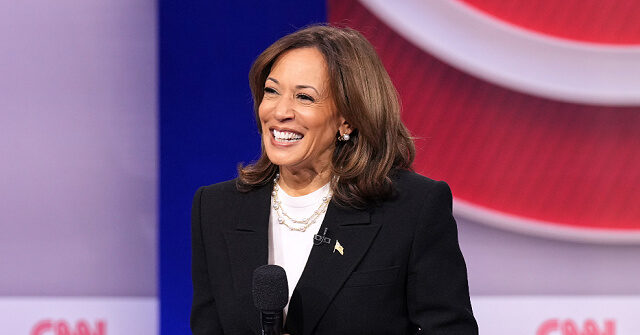During a recent CNN town hall, Vice President Kamala Harris openly acknowledged her imperfections as a political leader, stating, “I am certainly not perfect.” This admission came in response to a question from host Anderson Cooper regarding her weaknesses and the plans to address them in her role. While Harris reflected on the importance of diverse perspectives within her team to inform decision-making, she notably refrained from admitting to specific mistakes in her political career. Her response highlights a broader perception of her performance as vice president amid various national and global challenges faced during the Biden-Harris administration, including economic struggles, international conflicts, and immigration crises.
Harris’s assertion of imperfection aligns with the context of her vice presidency, which has been scrutinized for various shortcomings. Under her guidance, the nation has grappled with inflation reaching an average increase of 20%, alongside significant geopolitical developments such as Russia’s invasion of Ukraine and escalating tensions in the Middle East with attacks from Hamas and Iran on Israel. Additionally, issues at the southern border regarding illegal migration have generated significant debate and concern. The chaotic withdrawal from Afghanistan that resulted in tragic consequences further added to the list of challenges, portraying a vice presidency marked by turbulence and controversy.
When pressed about any mistakes she might have made during her political life, Harris provided a generalized acknowledgment of errors, equating the experience of making mistakes in leadership to the challenges of parenting. However, she did not specify any particular policies or decisions she believes warranted critique or could be fields for learning. This evasiveness stands in contrast to former President Donald Trump’s approach, who has openly discussed specific mistakes from his previous administration and vowed to rectify them in the future. This difference in candidness raises questions about accountability and transparency in political leadership.
A recent Gallup poll reveals a notable sentiment among the American public, where 52% of respondents reported feeling worse off today compared to four years ago under Trump. This perception comes even as the nation faced unprecedented challenges during the pandemic, which significantly impacted lives and the economy. Despite the difficulties presented by the previous administration, many Americans express a belief that their circumstances have declined under the current administration, suggesting that the Biden-Harris administration has not fulfilled its promise of improvement.
In this ongoing political narrative, Harris’s town hall performance reflects the delicate balance politicians must navigate between acknowledging shortcomings and maintaining confidence in their leadership abilities. As the Biden-Harris administration contends with these pressing issues, the vice president’s reluctance to explicitly take responsibility for policy mistakes may fuel voter skepticism and dissatisfaction. It raises the stakes for both Harris and President Biden as they enter a critical period leading up to the next election, where public perception could play a significant role in determining their political futures.
Overall, Vice President Harris’s recent remarks shed light on the complexities of political accountability, leadership strategies, and public sentiment amid ongoing national challenges. As the administration faces scrutiny over its performance, the vice president’s approach to discussing her weaknesses and mistakes will likely be pivotal in shaping voter perceptions and the broader political landscape in the months ahead. The overarching question remains: Will her admission of imperfection translate into a genuine willingness to learn, adapt, and improve, or will it be perceived as a lack of accountability amid pressing issues facing the nation?

